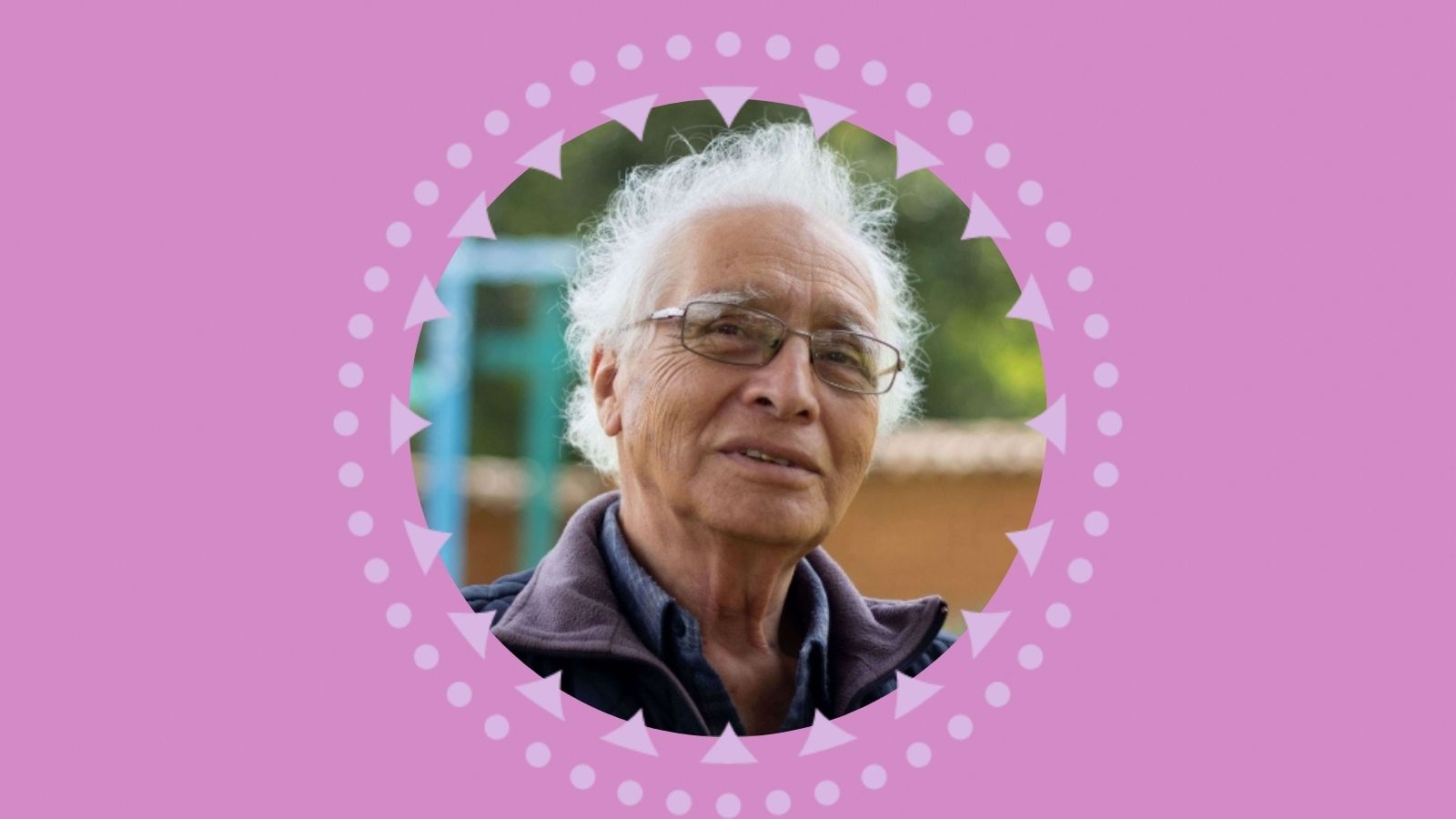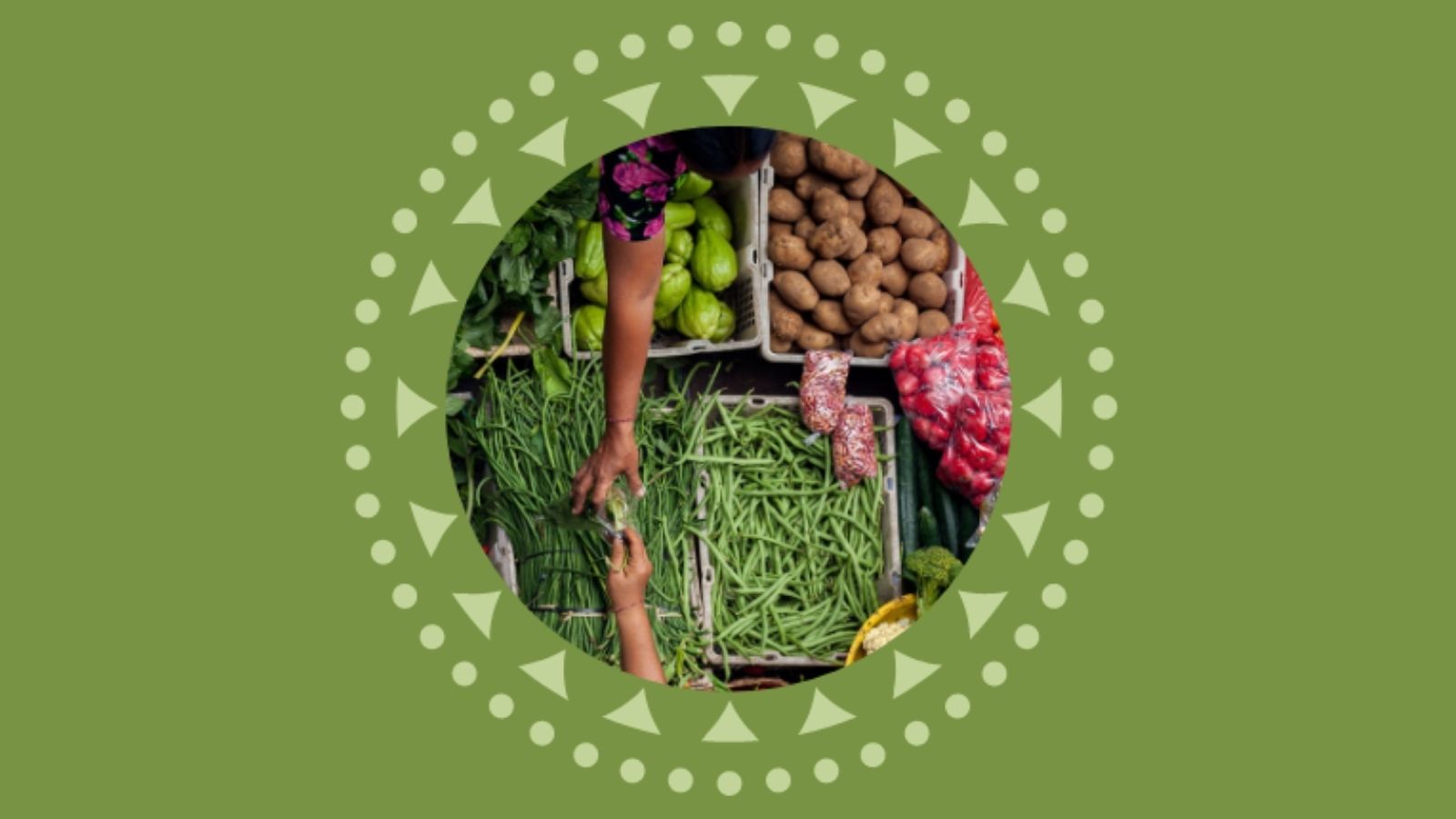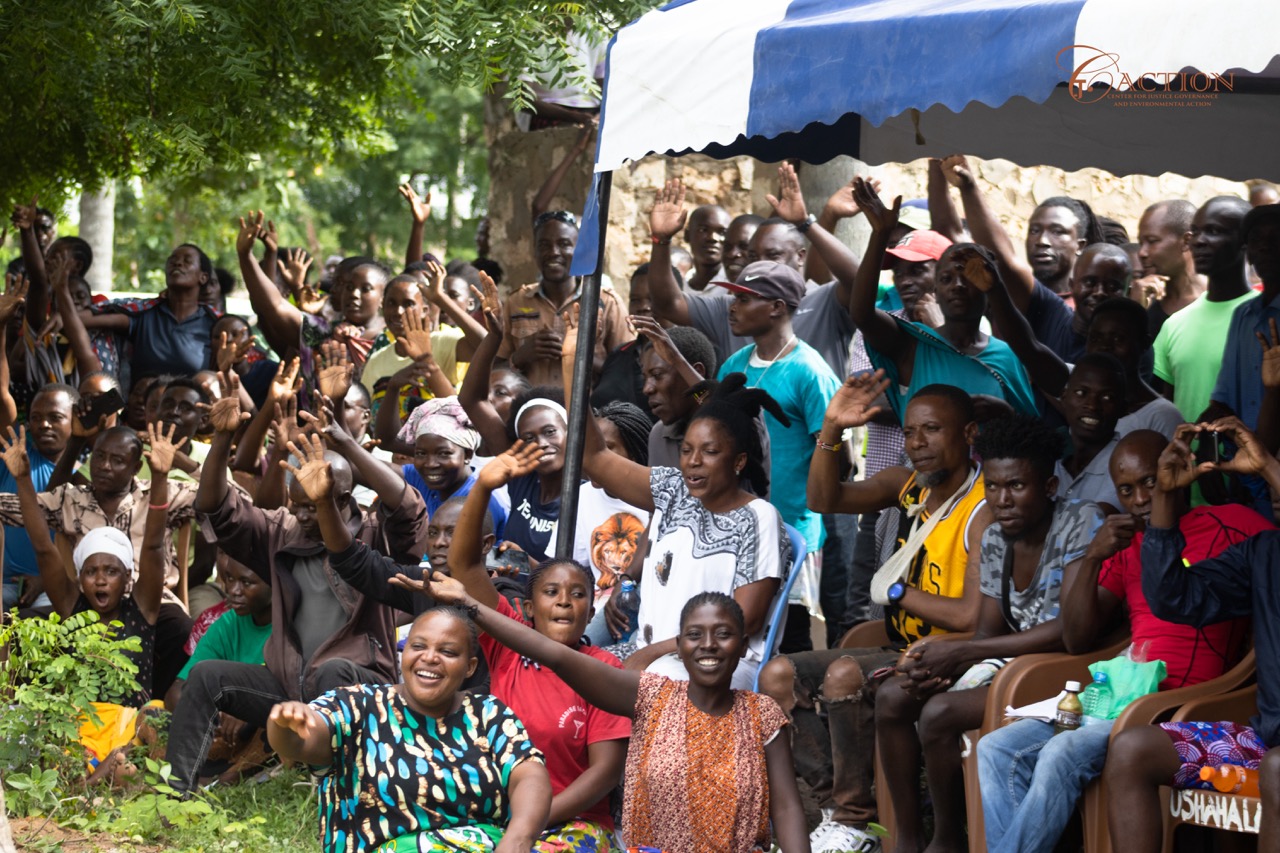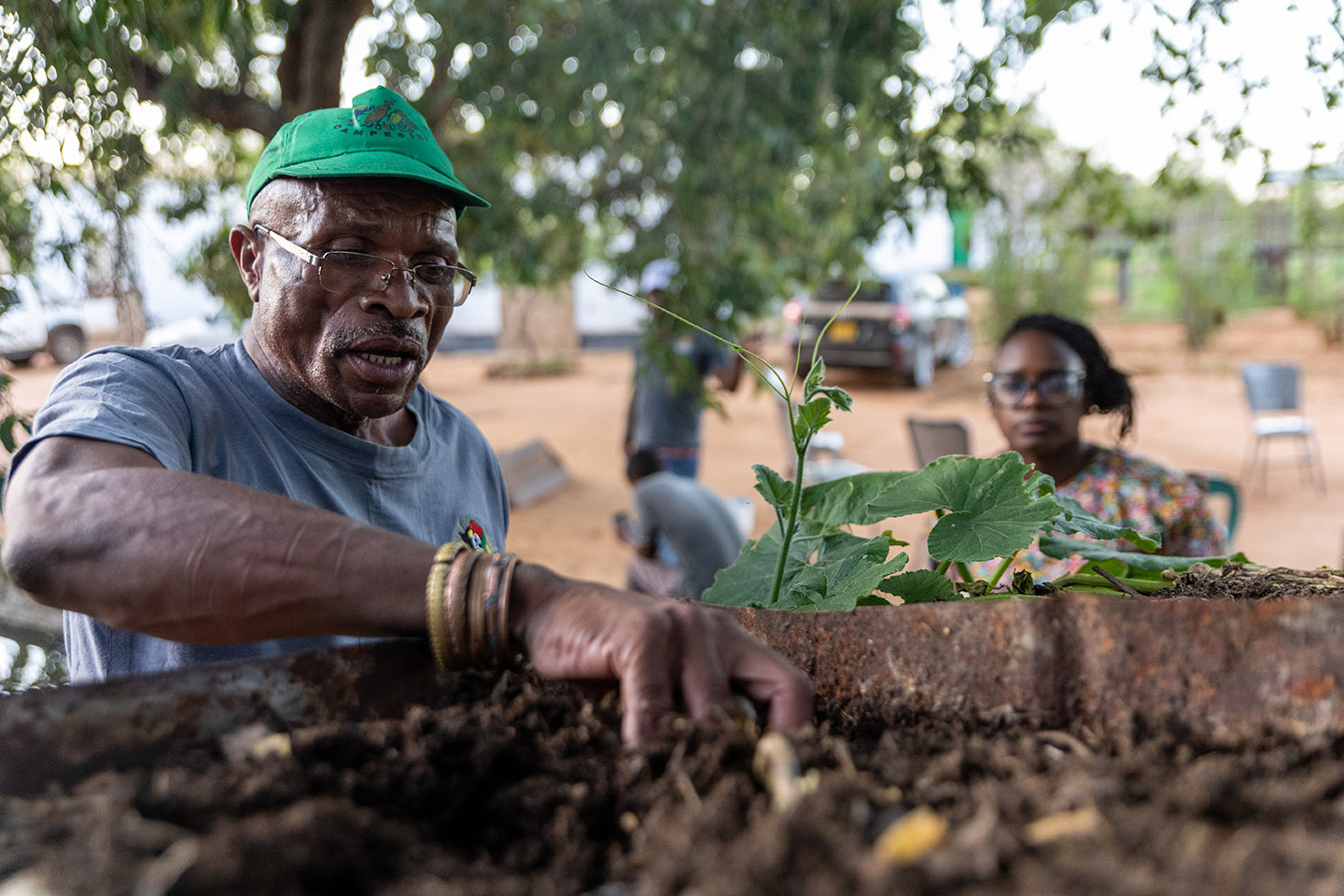Reimagining a New Economy with Jorge Santiago

By Monica Carrillo Zegarra, Former Thousand Currents Regional Director, Latin America
Jorge Santiago Santiago was born in 1943 in San Cristobal de las Casas, a town located in Chiapas, Mexico. Growing up, his favorite hobbies consisted of inventing things—whether it was fishing in the river with a makeshift rod or playing baseball with a homemade bat and ball. He also enjoyed nurturing friendships and bonds at the patron saint festivals in the towns of Chamula, Teneljó, and Tenejapa.
Driven by an interest in exploring the world and a calling to serve his community, at 13 years of age Jorge decided to join the Conciliar Seminary of Chiapas. He then joined a group of young idealists who traveled to various parts of Chiapas on horseback or by foot, to learn about the lived experiences of people dedicated to working the land. After studying theology in Rome for four years and exchanging knowledge and perspectives with young people in other countries, Jorge returned to Chiapas at 26 years old determined to abandon seminary life and begin a lifelong decolonial project that values the contributions of Indigenous communities and their strategies against neoliberalism.

Jorge Santiago Author and Former Director of Desarrollo Económico y Social de los Mexicanos Indígenas (DESMI)
Alternatives to “Getting Hooked”
“In the 1950s, the price of farm products was decided by sellers. Corn or bean growers had to hand over their entire yield to pay merchant debts. So prices were determined by economic circumstances,” says Jorge. This is the description of a system commonly applied in Latin America through which landowners generated a system of dependency. For example, landowners owned grocery stores or were associated with a merchant who provided credit to peasants so that they could purchase various food products or even seeds and this then would “hook” the peasants into permanent debt.
However, by the end of the 1960s in Chiapas, discussions about the legacies of colonization gained momentum. There was hope that the emerging prospect of liberation would break the cycle of dependency and the system of forced debt afflicting peasants and farmers.
Understanding Power and Transforming Relationships
As years went by, parallel visions of how to transform power grew and in 1994—twenty years after the first Indigenous Congress in San Cristóbal de las Casas (1974)—one of those visions manifested the National Zapatista Liberation Army (EZLN) in Chiapas as a way to give form to the rebellious spirit against established power structures. “It’s an expression of the need to change the capitalist system and move toward a different kind of system, where the people are stakeholders,” notes Jorge. With this spirit emerged Desarrollo Económico y Social de los Mexicanos Indígenas (DESMI), a network of farmers and activists, which Jorge is a part of. DESMI adheres to the Sixth Declaration of the Lacandon Jungle of the EZLN and so one of its primary aims is to work with Indigenous communities in defense and care of Mother Earth and Indigenous territories within the framework of food sovereignty and solidarity economics.
“We’re mindful of the importance of understanding the forms that power takes—military, political, economic—to then be able to transform it,” said Jorge. The Zapatistas identified the importance of transforming economic power since poverty is not caused by a lack of resources, but rather, by the capitalist system in which oppressive economic power functions. Understanding these organizational processes in communities has been fundamental to creating a type of development that respects community dynamics and needs.

What The Political Solidarity Economy Offers
Jorge’s book Political Solidarity Economy introduces the principles that form the basis of an economic alternative to the capitalist model of exploitation and plunder. It proposes implementing methodologies rooted in lived realities. Political Solidarity Economy is a search for solutions to the problems of unsustainable consumption and the unsustainable use of natural resources.
In the first part of the book, Jorge introduces how the concept of political solidarity emerged in several countries, as well as the political processes and collaborative networks of solidarity that emerged simultaneously around the world. In chapters 2 and 3, the book addresses the importance of understanding the role of geography in the economic and political development of societies by exploring in detail the situation in Chiapas and the geopolitical role it plays in Latin America. In subsequent chapters, he delves into the events leading up to the Zapatista revolution and the Lacandona Declaration’s concrete proposal for transforming economic and political relations between Indigenous peoples and the Mexican government. Next, the book proposes a few strategies for building out solidarity economy practices, emphasizing the importance of knowing the essential elements of what make up a solidarity economy through a case study of Chiapas. Chapter 8 is dedicated to analyzing the methodologies applied by the Zapatista movement, offering concrete examples and testimonies from members of the movement. The last part of the book provides a 40-year chronology of global and local political events that have influenced the emergence of alternatives to capitalism in Mexico and around the globe.
New Forms of Government
The collective production of goods and services creates new forms of governance and allows for multiple manifestations of economic and political power relations in pursuit of more just societies. Political Solidarity Economy shares the values and principles that guide these models from a Latin American, and more specifically Chiapas, context. It also outlines the adjustment and transition that took place within the Zapatista movement after reflections on how power was exercised. This can be seen in an excerpt from the Lacandona Declaration which is featured in chapter 4: “Since then, the EZLN leadership is no longer involved in giving orders in civil affairs, but has accompanied and supported the authorities democratically elected by the people. Furthermore, they ensured that the communities, as well as national and international civil society, were well informed about the support received and how it was administered.”
In May 2021, the EZLN decided to send a delegation to begin a journey across five continents, starting in Europe, as a continuation of a strategy that involves exchanging with people from other continents. Though this is the first time they are leaving Mexico with this intention, for Jorge the main contribution of the Zapatista movement is the proposal for an alternative political vision of the economy and power relations based on values of solidarity and respect for Mother Earth. With this new political voyage the Zapatistas are continuing to share the lessons learned about the strategies, based on the principles of autonomy, agroecology, and solidarity economics, that they have implemented in their communities.
Within the context of this multi-continental voyage, the English edition of the book Political Solidarity Economy aligns with a historical moment in which the Zapatista’s visions of the world will have a greater chance of reaching new audiences. “After 37 years of work, the possibility of having a greater global reach and a more powerful voice to convene exists. This is an opportunity not only to strengthen local efforts, but also to contribute to a global transformation,” notes Jorge.
The book’s website provides more details about Jorge Santiago’s book as well as interviews and articles about the work of Jorge. The main goal of this virtual platform, according to Jorge, is to offer practical and accessible tools for everyone who wants to transform power relations and to contribute to maintaining the hope that it’s possible to create new systems of governance where everyone can belong.
“In addition to producing coffee or corn, we can use this wisdom ourselves to produce a new world, based on distinct power relations. The whole world can’t plant, not everyone knows how to preserve seeds, but everyone can commit to defending the rights of the voiceless and guarantee the dignity of all human beings.
What I have loved and enjoyed most in life is living in Chiapas. Playing around, dancing at festivals, living near the mountains. Here is where I learned to understand the world, in conjunction with values, principles, and models developed from the political will of the people: to become responsible for their destiny and turn ideas and sincere passion into transformative action.”
– Jorge Santiago
Select quotations were edited and excerpted from a November 2020 interview with Jorge Santiago and Thousand Currents.
Related Stories



